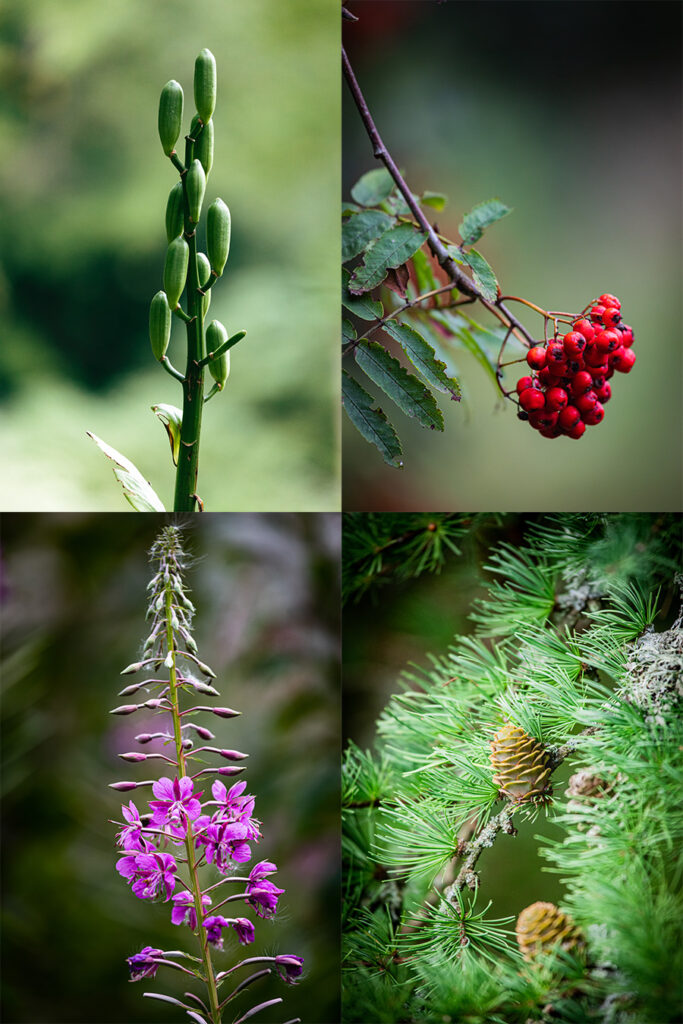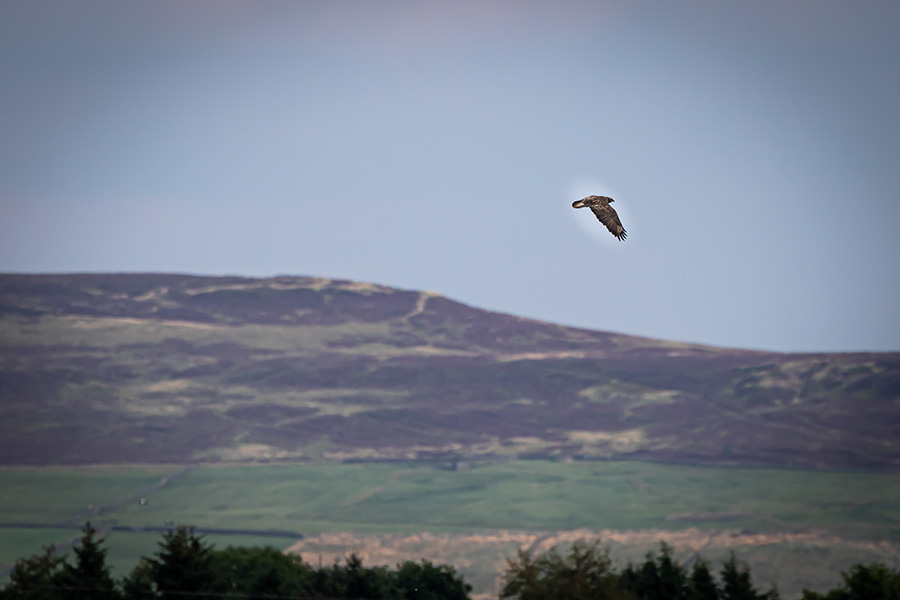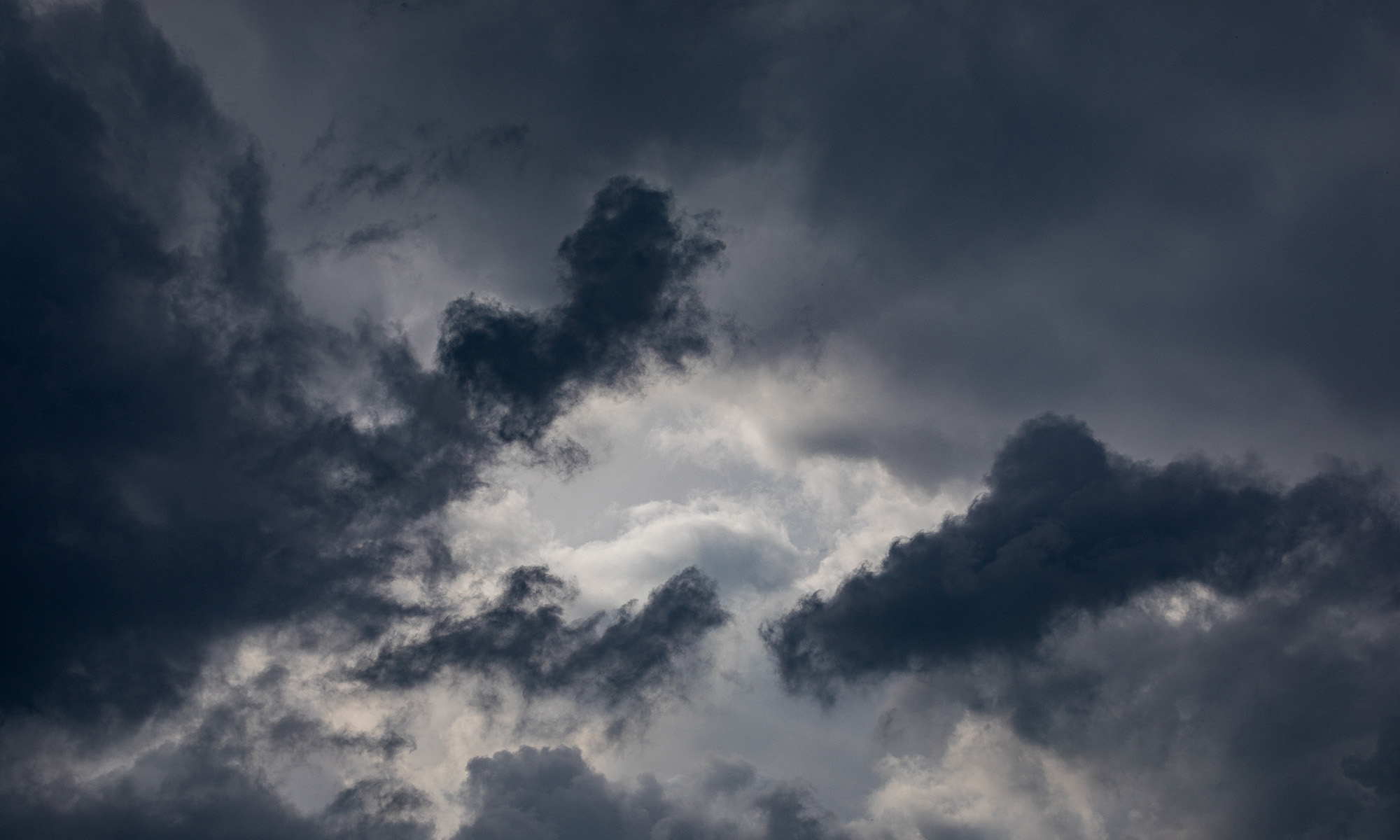Crystalline glazed surfaces have complex structures that change in appearance under different lighting conditions. For this photography session, the weather offered the possibility of some dramatic conditions: it was warm and humid, the wind, so often a powerful force on the moorland peaks was still and in the far distance dark clouds loomed and a faint hint of thunder disturbed the near silence.
Dramatic cloud formations dominated the sky on the approach to the summit of Black Hameldon.
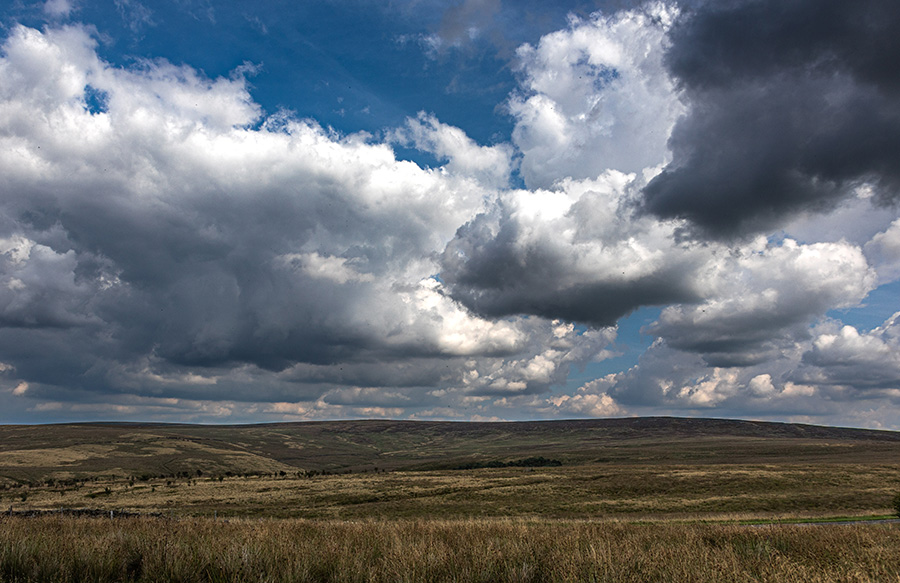
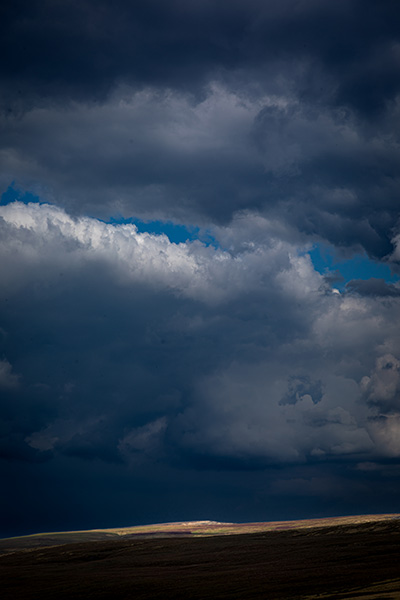
Moving on to higher ground, the sky became increasingly threatening. Dark clouds floated above Standing Stone Height on Gorple Moor.
The turbines of Coal Clough wind farm were still: the silence was profound.

Approaching the summit a break in the clouds lifted the gloom for a short while allowing some good shots set against the white gritstone outcroppings.
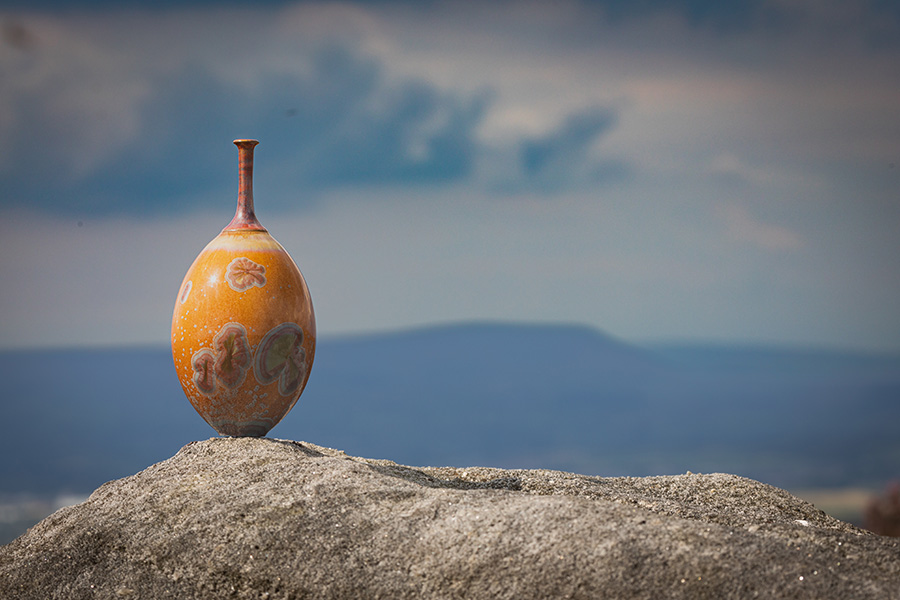
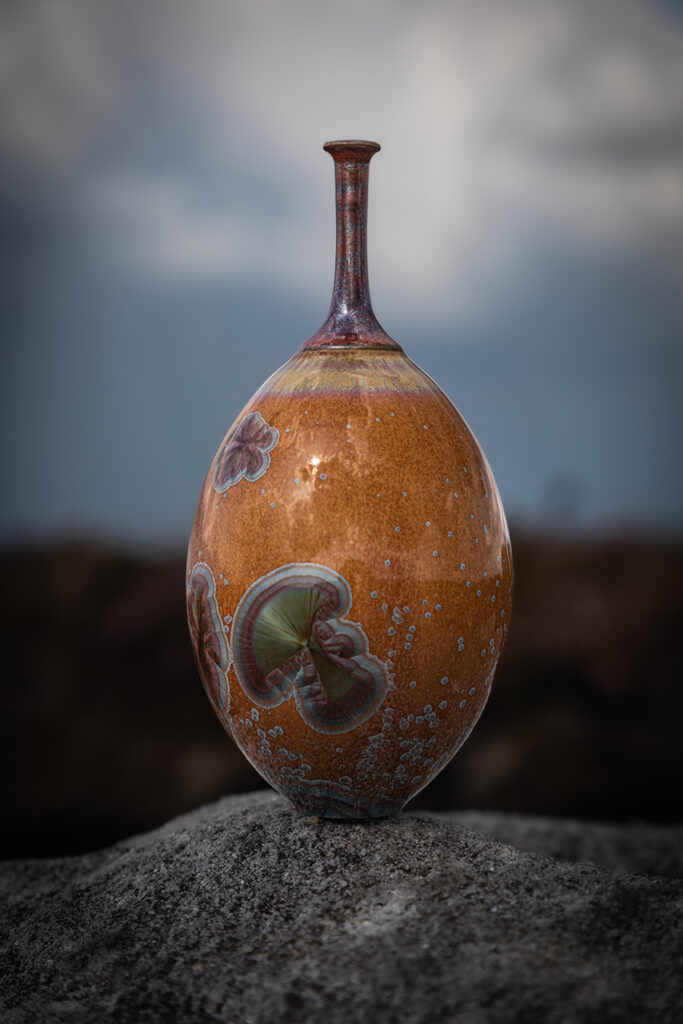
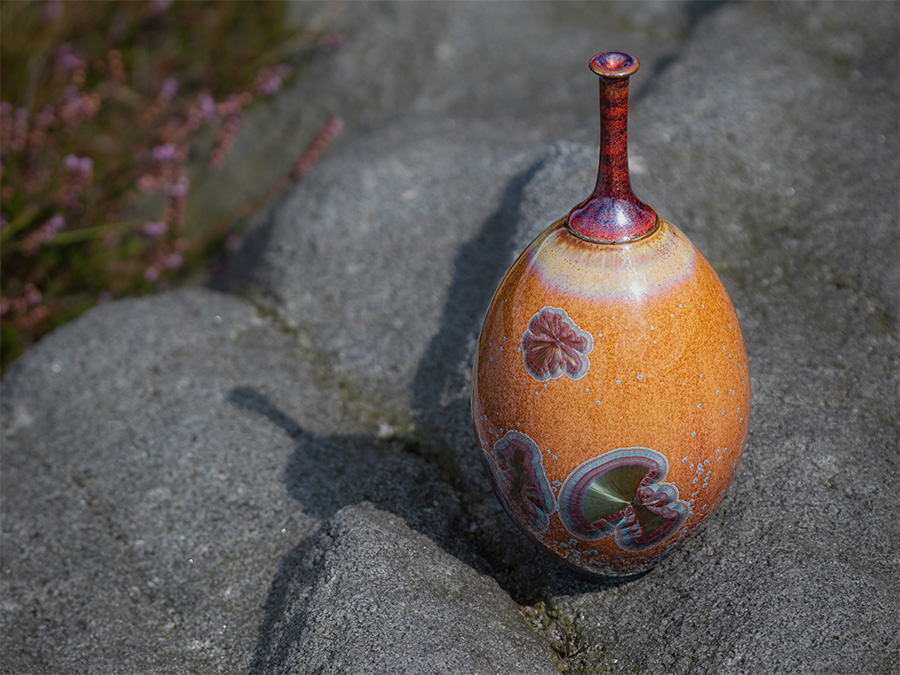
Black Hameldon is an example of peat moorland. Until recently, the peat was badly degraded. Grazing by sheep had left a monotonous grass landscape with deep gullies of eroding peat. A walk near the summit during a dry summer would have caused dust to rise from the parched soil. Today the landscape is very different. The sheep are gone and with them the erosion. The peat is now hidden under dense mossy vegetation and the rough moorland grass largely replaced by heather and bilberry.
Today, in the absence of wind, the sound of humming insects dominated. The heather was teaming with a host of small flying creatures. My pot quickly attracted the attention of a solitary bee. Bees see further into the violet part of the spectrum than humans: I wonder what it saw? Maybe there is structure hidden in the crystals that the human eye cannot see.
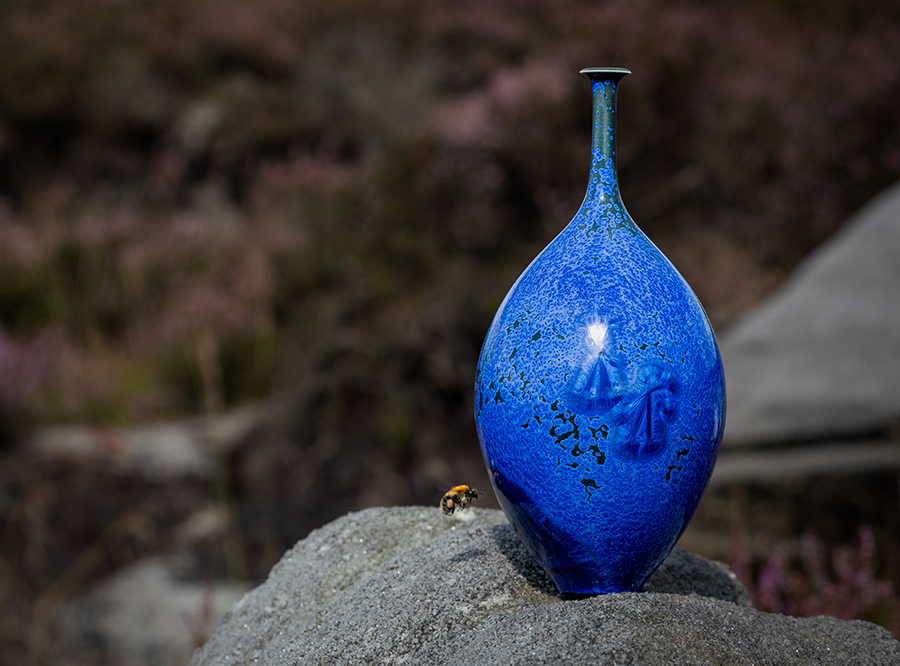
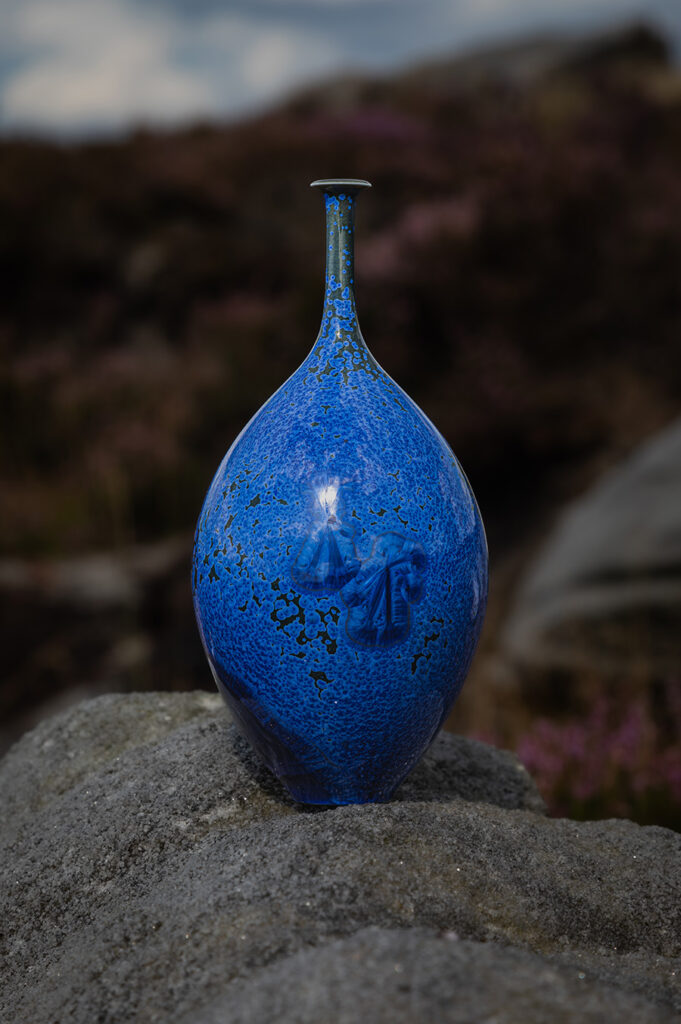
Pottery photography done, it was time to explore Noah Dale and the Colden Valley in search of inspiration for new ideas. The sky continued to offer a dramatic backdrop.
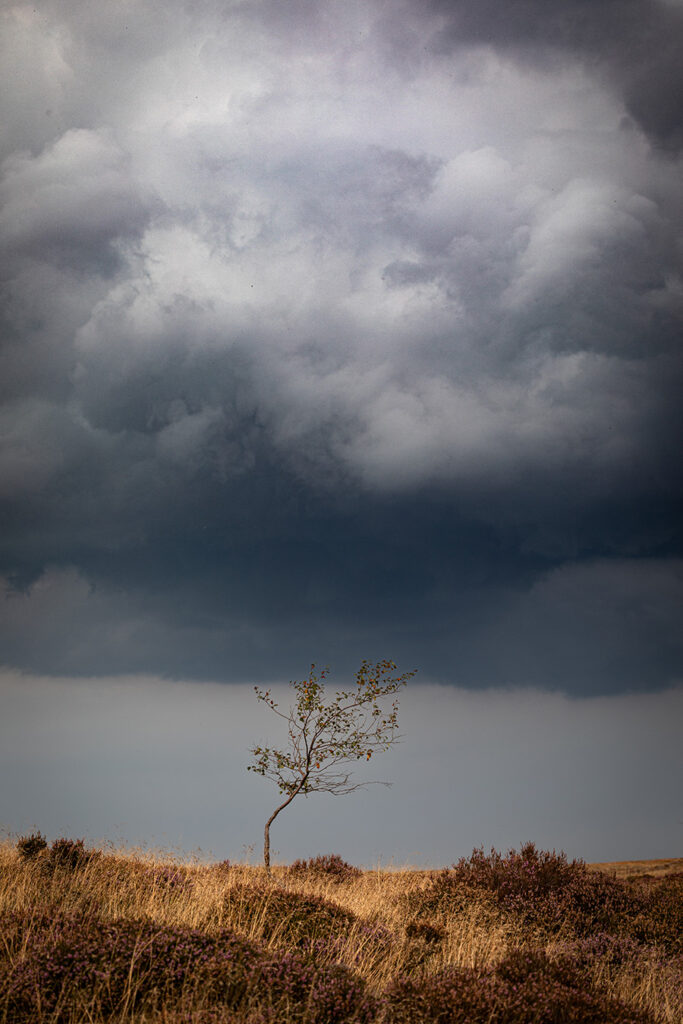
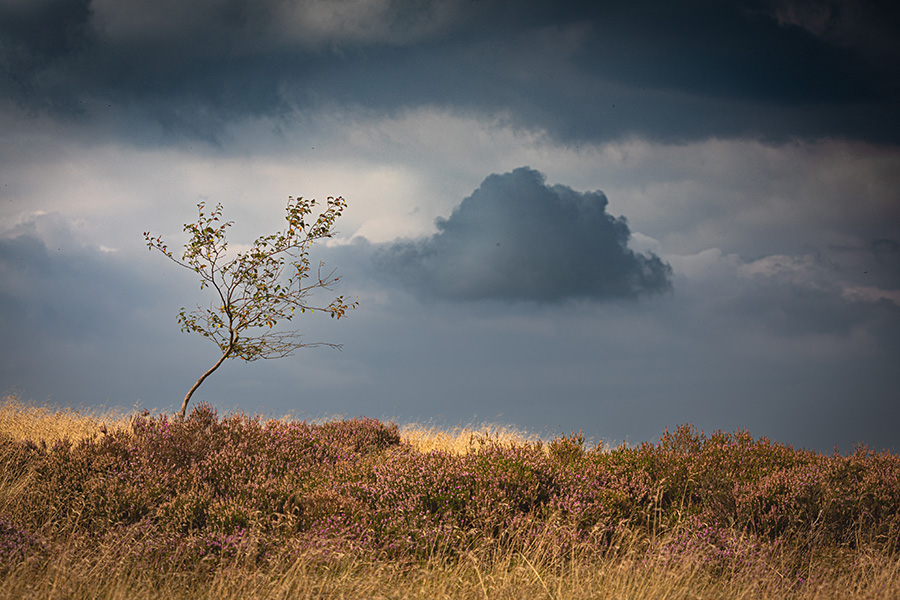
Brief spells of bright sunlight alternated with gloom bringing out contrasting aspects of the Noah Dale ruins.
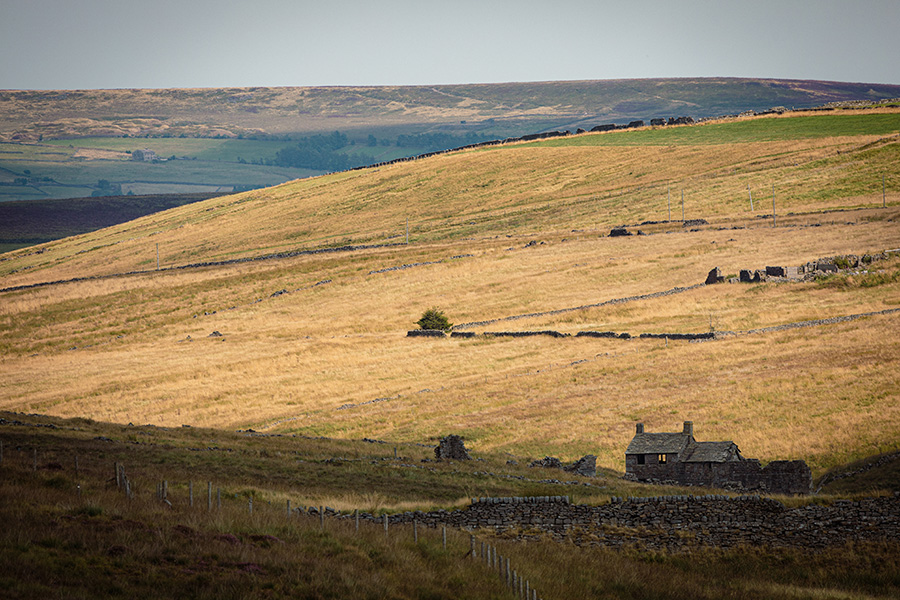
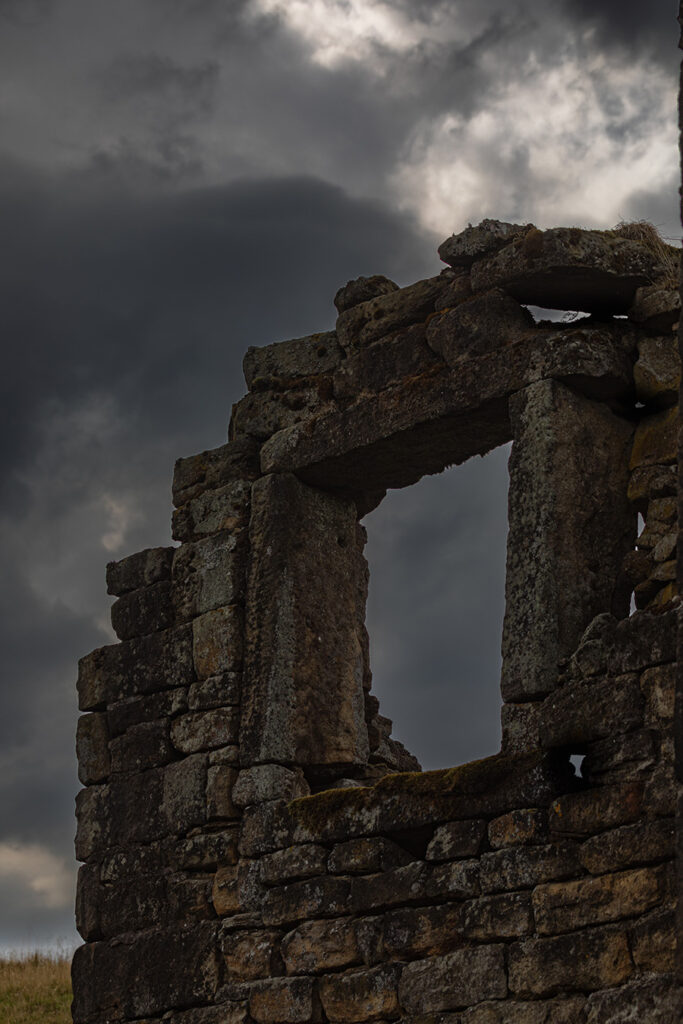
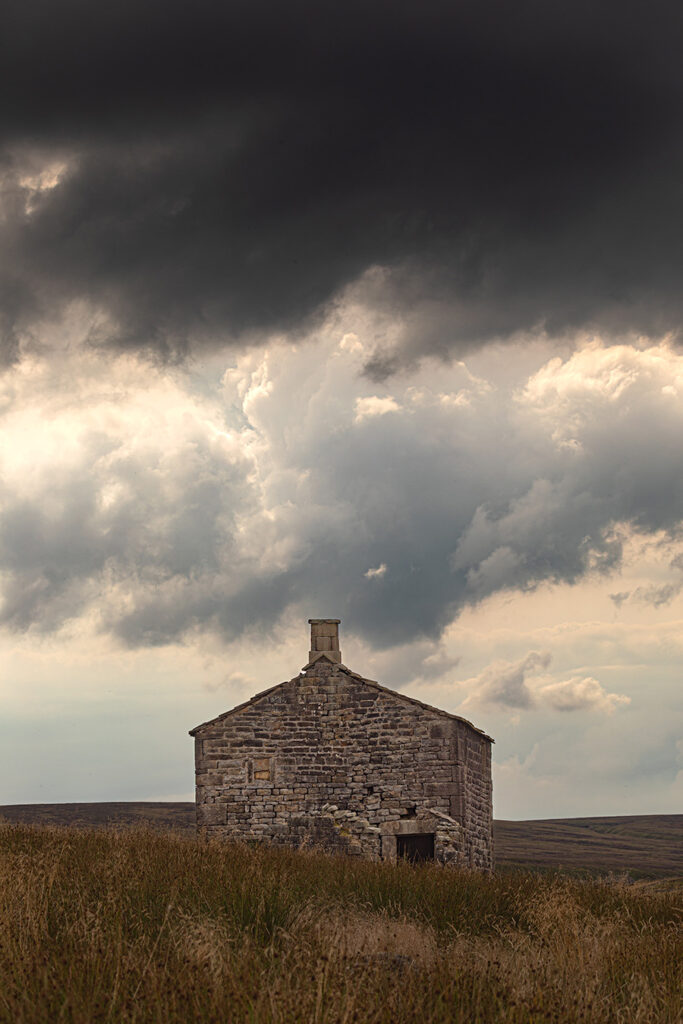
Leaving the moorland behind, the path runs though a green tunnel of young trees leading onwards into the lowlands of the Colden Valley.
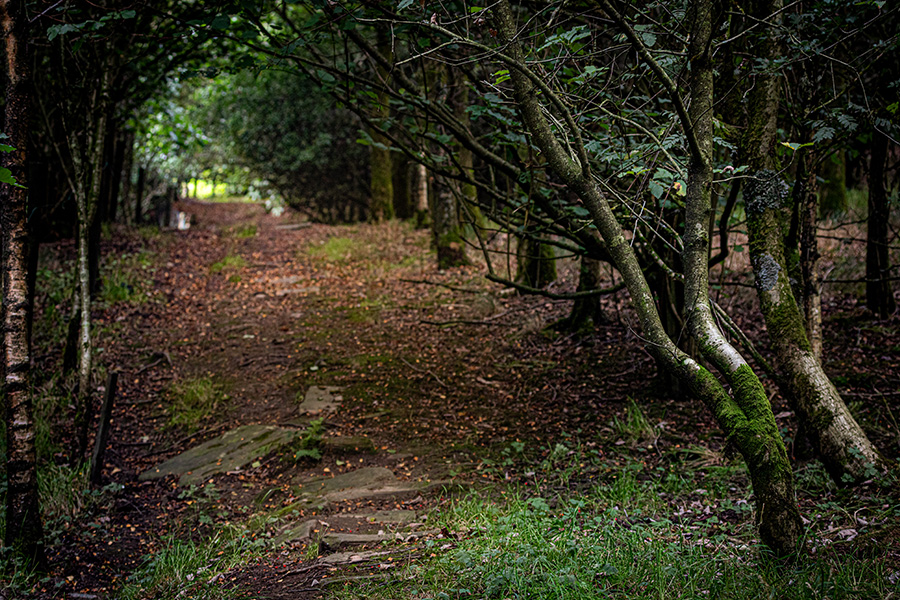
With the moorland behind, the Colden valley was full of late summer delights. Some new ideas maybe…
